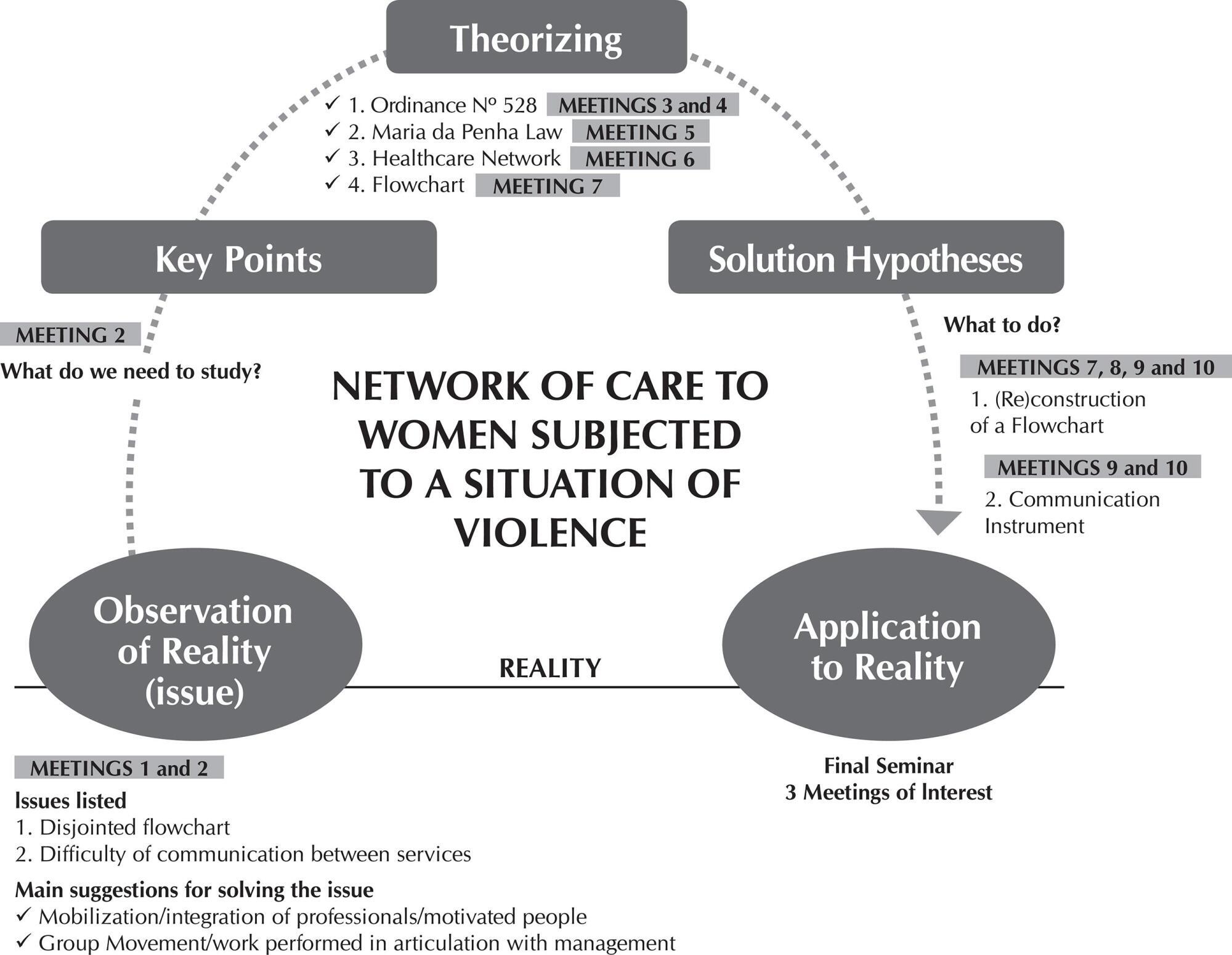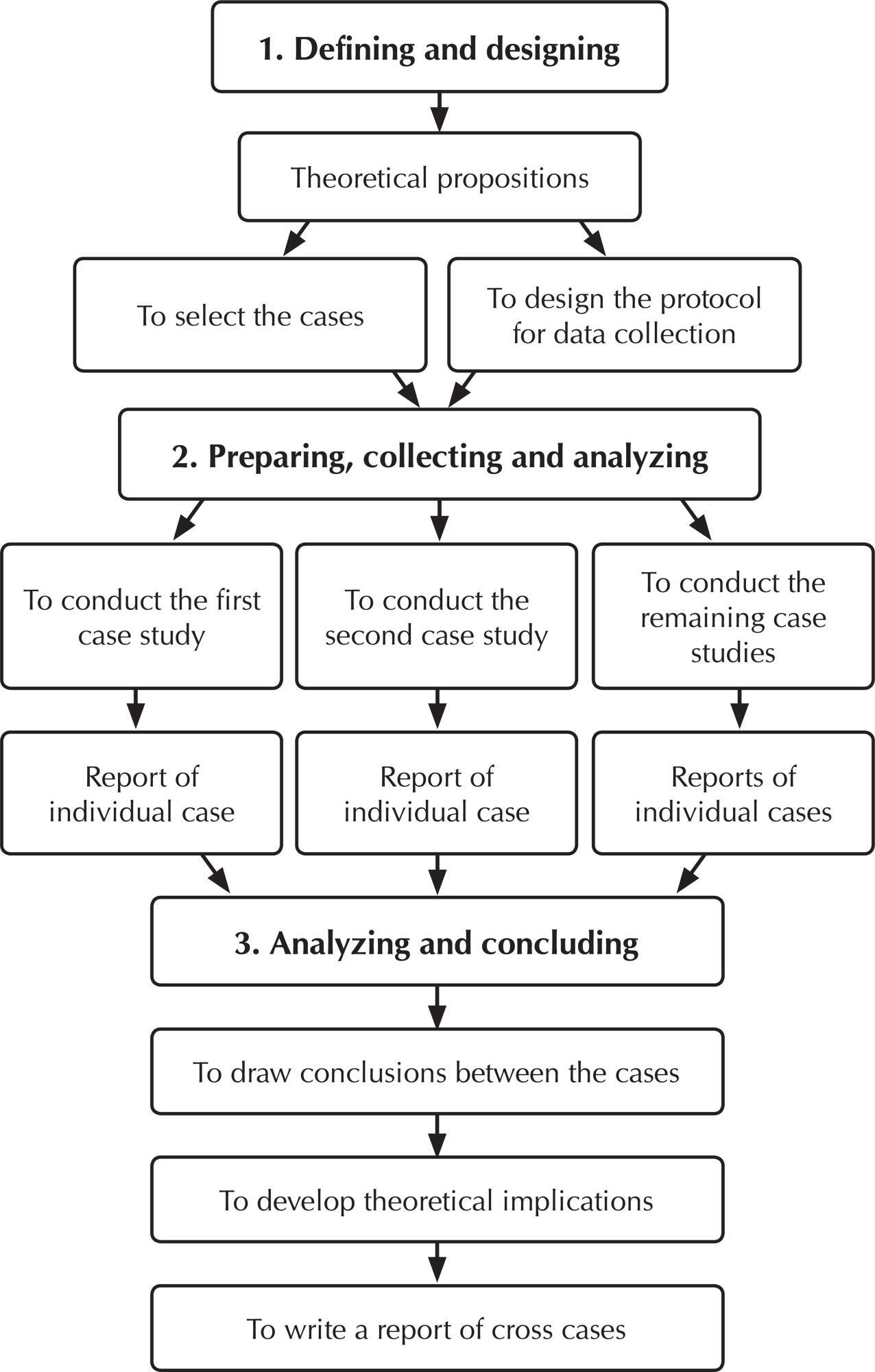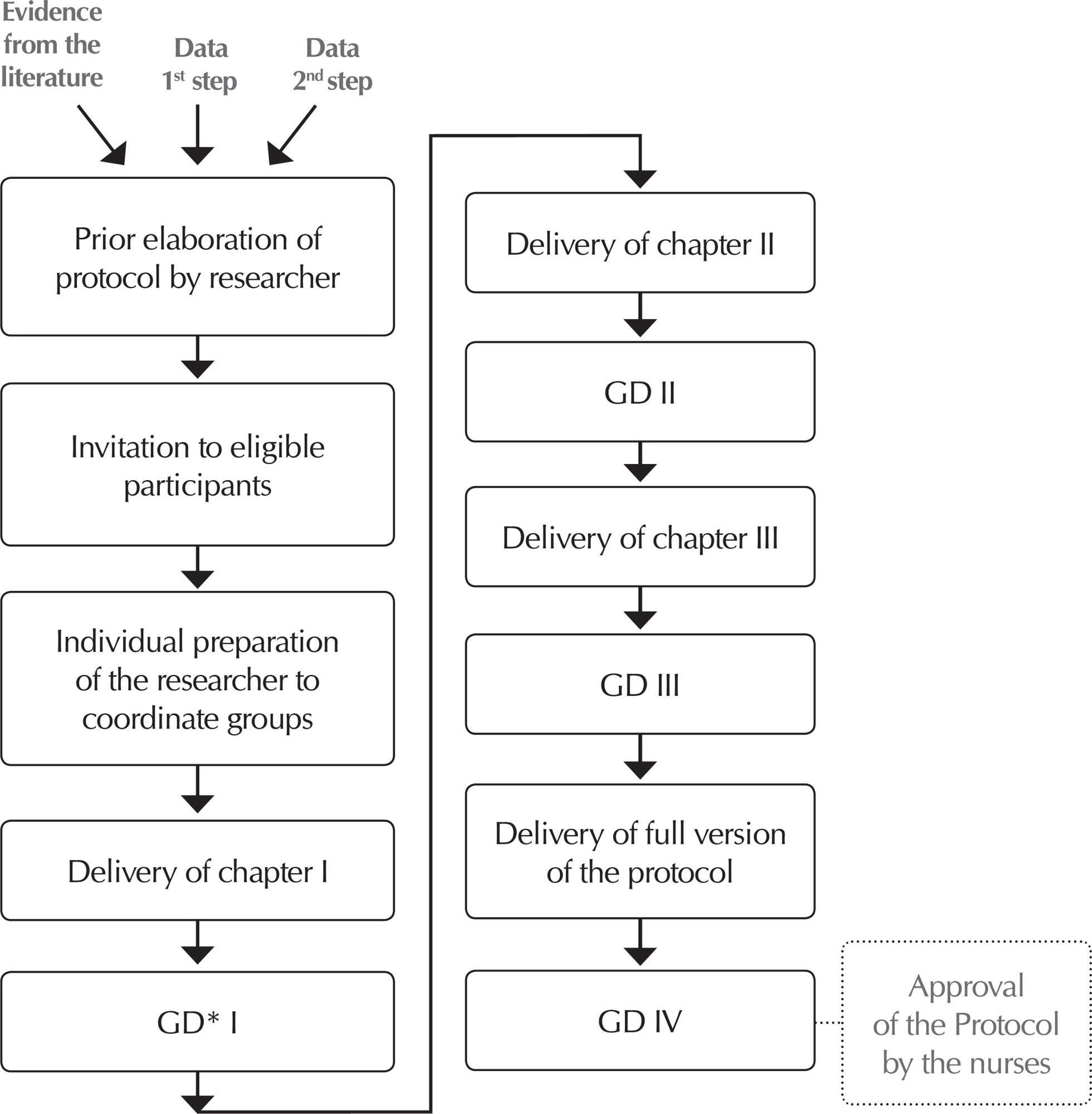-
ORIGINAL ARTICLE
Grounded Theory methodological aspects in Brazilian nursing thesis
Revista Brasileira de Enfermagem. 2020;73(6):e20190274
08-10-2020
Resumo
ORIGINAL ARTICLEGrounded Theory methodological aspects in Brazilian nursing thesis
Revista Brasileira de Enfermagem. 2020;73(6):e20190274
08-10-2020DOI 10.1590/0034-7167-2019-0274
Visualizações0Ver maisABSTRACT
Objective:
to analyze the application of methodological aspects of Grounded Theory in Brazilian nursing thesis.
Methods:
qualitative, descriptive study elaborated based on theses available in the CAPES Thesis and Dissertations Catalog, located with the search for the terms “Teoria Fundamentada nos Dados” OR “Grounded Theory”, from 2013 to 2017. The data obtained were analyzed, considering the Grounded Theory methodological assumptions.
Results:
observance of Grounded Theory basic concepts and articulation with several theoretical frameworks in the conduct of the investigations are strengthening aspects of the method. However, dissent in the description of the operationalization of the stages and naming of the elaborated construct weaken the methodological quality.
Final considerations:
the methodological consistency provided by Grounded Theory has the potential to demonstrate the studies’ rigor and reliability conducted and theories generated. It is necessary to deepen theoretical-conceptual studies to elucidate discrepancies in the applicability in nursing research.
-
EXPERIENCE REPORT
Generating meaningful conversation: World Café in strategic interprofessional planning in Continuing Education
Revista Brasileira de Enfermagem. 2020;73(5):e20190279
07-01-2020
Resumo
EXPERIENCE REPORTGenerating meaningful conversation: World Café in strategic interprofessional planning in Continuing Education
Revista Brasileira de Enfermagem. 2020;73(5):e20190279
07-01-2020DOI 10.1590/0034-7167-2019-0279
Visualizações0ABSTRACT
Objectives:
to present the particularities of the World Café, identifying the main aspects that characterize a planning strategy for a constructive, interactive, and participative dialogue of the individuals, aiming at collaborative and innovative learning.
Methods:
a World Café method workshop with 24 professionals from the teams that work in basic health units.
Results:
we obtained three analysis categories: Individual Needs, Group Needs, and Institutional Needs, which resulted in the Municipal Plan of Actions on Continuing Health Education.
Conclusions:
we found that the World Café was adequate and relevant for the discussion of key themes, for the practices of teams in Primary Care and the production and organization of data in a collective space.
Final Considerations:
the method can contribute to the construction of knowledge and proximity to the daily reality of interdisciplinary teams, as well as serving as a tool in the preparation of planning in Permanent Education.
Palavras-chave: Continuing EducationIntersectoral CollaborationMethodologyPrimary Health CareQualitative ResearchVer mais -
EXPERIENCE REPORT
Problematization Methodology and Convergent Healthcare Research: praxis proposal in research
Revista Brasileira de Enfermagem. 2018;71(2):440-445
01-01-2018
Resumo
EXPERIENCE REPORTProblematization Methodology and Convergent Healthcare Research: praxis proposal in research
Revista Brasileira de Enfermagem. 2018;71(2):440-445
01-01-2018DOI 10.1590/0034-7167-2016-0362
Visualizações0Ver maisABSTRACT
Objective:
Presenting theoretical subsidies for the nursing care practice based on the possibility of convergence between research practice and educational practice.
Method:
The Convergent Healthcare Research was developed from February to August 2015, with an intersectoral working group formed by 32 participants, including health, social services and public safety professionals. Ten group meetings were organized, based on the Problematization Methodology with Maguerez's Arch.
Results:
The reflection-action movement resulted in the shared (re)building of the flowchart of care to women subjected to a situation of violence, as a device for communication between the services.
Final considerations:
The research practice based on the Problematization Methodology with Maguerez's Arch proved to be useful and viable in qualitative research, which has as purpose the transformation of the reality studied.

-
EXPERIENCE REPORT
Multiple case study applied in nursing research: a case report
Revista Brasileira de Enfermagem. 2018;71(3):1194-1197
01-01-2018
Resumo
EXPERIENCE REPORTMultiple case study applied in nursing research: a case report
Revista Brasileira de Enfermagem. 2018;71(3):1194-1197
01-01-2018DOI 10.1590/0034-7167-2017-0066
Visualizações0Ver maisABSTRACT
Objective:
To report the experience of using the method of multiple case study.
Method:
We used the method of multiple case study, conducted with children and adolescents assisted in the pediatric oncology inpatient unit.
Results:
The steps used for the development of a multiple case study were: Step 1 - Define and design; Step 2 - Prepare, collect and analyze; Step 3 - Analyze and complete. The steps included the development of a research project with the definition of its components, preparation of protocol for the case study, data collection, individual report of cases, data analysis and final report with data cross-referencing.
Conclusion:
The case study method can be used by nurses and contribute to the advancement in knowledge of nursing as a science and therefore contribute to a full care practice in the context in which the phenomenon happens.

-
EXPERIENCE REPORT
Validation in grounded theory: conversation circles as a methodological strategy
Revista Brasileira de Enfermagem. 2018;71(6):3121-3126
01-01-2018
Resumo
EXPERIENCE REPORTValidation in grounded theory: conversation circles as a methodological strategy
Revista Brasileira de Enfermagem. 2018;71(6):3121-3126
01-01-2018DOI 10.1590/0034-7167-2017-0488
Visualizações0Ver maisABSTRACT
Objective:
To present the validation of a theoretical model through conversation circles in a qualitative research guided by the Grounded Theory.
Method:
Study carried out from a thesis developed in a reference hospital in the south region of Brazil. Two conversation circles happened, with participation of representatives of the “Training Prism”, in the months of October and November, 2016.
Results:
The conversation circle enabled an in depth dialogic approach of the subject of research, broadening the vision on the phenomenon and on the research. The circle also mobilized thinking as it highlighted the subjectivity of individuals, expanding the group’s ability of understanding and assisting in the validation process of a theoretical model.
Conclusion:
The conversation circle emerges as a powerful strategy for the development of qualitative research in nursing, more specifically in the validation step of the Grounded Theory.
-
EXPERIENCE REPORT
Developing a nursing healthcare protocol: a case report
Revista Brasileira de Enfermagem. 2018;71(suppl 6):2837-2842
01-01-2018
Resumo
EXPERIENCE REPORTDeveloping a nursing healthcare protocol: a case report
Revista Brasileira de Enfermagem. 2018;71(suppl 6):2837-2842
01-01-2018DOI 10.1590/0034-7167-2017-0846
Visualizações0Ver maisABSTRACT
Objective:
to report the use experience of convergent healthcare research for developing a nursing care protocol.
Method:
convergent care research developed in university hospital, from July to December 2016, with 27 participants.
Results:
the stages of the research and its results are described in the steps: conception, instrumentation, screening and analysis. The end result was the nursing care protocol in day zero of hematopoietic stem cell transplantation.
Conclusion:
convergent care research was an appropriate method for developing the care protocol, and an important contribution to the approximation between theory and practice. The nursing care protocol was the result of this study and confirmed both the purpose of the research as a professional Master's in acquiring knowledge aimed at improving professional practice.

-
EXPERIENCE REPORT
Focus group on qualitative research: experience report
Revista Brasileira de Enfermagem. 2017;70(2):424-429
01-01-2017
Resumo
EXPERIENCE REPORTFocus group on qualitative research: experience report
Revista Brasileira de Enfermagem. 2017;70(2):424-429
01-01-2017DOI 10.1590/0034-7167-2016-0091
Visualizações0ABSTRACT
Objective:
to report the experience of applying the focus group technique for production of data in qualitative research.
Method:
four group sessions were held from May to June 2015, with the participation of professionals from the public sector of PHC and from specialized service.
Results:
the way focus group was developed is described in steps: planning, recruitment, ambience, group sessions, and evaluation.
Conclusion:
we highlight that the focus group, as a technique to produce data in collective space, can contribute not only to the construction of knowledge in Nursing, but also to the research approach with the assistance practice.
Palavras-chave: Focus GroupsMethodological Research in NursingMethodologyNursingQualitative ResearchVer mais
-
EXPERIENCE REPORT
Qualitative methodologies in health research: interpretive referential of Patricia Benner
Revista Brasileira de Enfermagem. 2016;69(1):192-196
01-01-2016
Resumo
EXPERIENCE REPORTQualitative methodologies in health research: interpretive referential of Patricia Benner
Revista Brasileira de Enfermagem. 2016;69(1):192-196
01-01-2016DOI 10.1590/0034-7167.2016690125i
Visualizações0Ver maisABSTRACT
Objective:
this article reports on the experience of using the interpretive phenomenological framework of Patricia Benner in a Brazilian context. Benner's interpretive phenomenology, based on existential and interpretative philosophy, aims to understand human experiences in the particular worlds of research participants. Data were collected through interviews with nine nurses in November and December 2014.
Results:
data analysis process according to Benner's framework consisted of: transcription, coding, thematic analysis, and search for paradigmatic cases and examples. Therefore, the prior knowledge of the researcher is an important part of the study, consisting in manners of the research conduction.
Conclusion:
The use of this methodological framework entailed a great challenge for the researcher, however, it also enabled a unique opportunity to illuminate important existential phenomena related to the daily lives of research participants.



